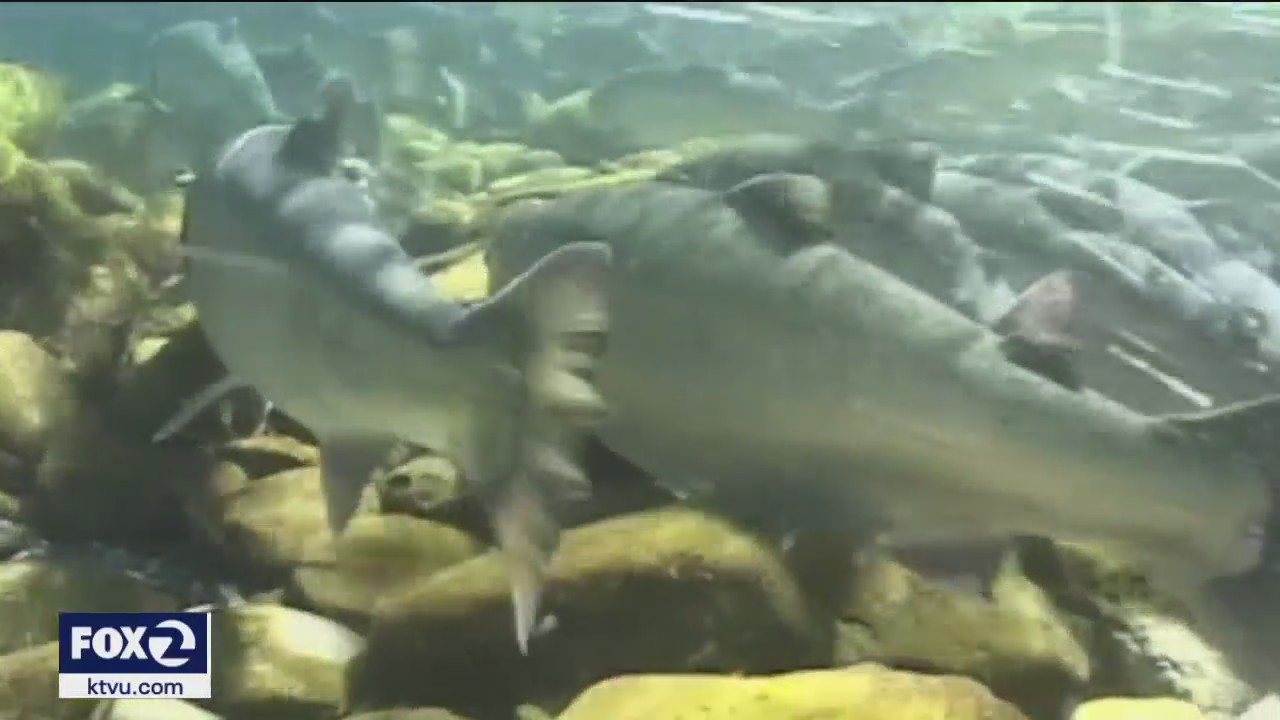Bay Area crab and salmon fishermen hit hard

Bay Area crab and salmon fishermen hit hard
California is cutting short the already delayed commercial crab season to April 15 south of Mendocino County to protect humpback whales from becoming entangled in crab potlines. This blow to fishermen comes just after learning there will be no salmon season this year.
SAN FRANCISCO - California is cutting short the already delayed commercial crab season to April 15 south of Mendocino County to protect humpback whales from becoming entangled in crab potlines. This blow to fishermen comes just after learning there will be no salmon season this year.
Larry Collins and his wife Barbara Emley, who cherish the moniker of "Old Salts," have owned and run a crab and salmon boat for more than 40 years. Larry has created or served on almost every commercial small-boat fleet fishing organization, mostly as president.
"We've lost half our crab season. Now we've lost all our salmon season this year and could be next year," said Collins.
From its very beginnings here in San Francisco or in other ports around the Bay as well as Pillar Point and Bodega Bay, fishing has been mostly a family affair dominated by small boats going out at the appointed time. That fleet has been decimated.
"When we started fishing, my wife and I, there [were] 4,700 salmon boats in California. Now, there's probably eight or nine hundred permits, but really there is a fleet that fishes of about 400 boats," said Collins.
That's a decline of 92%, even before all the new bad news. Once nonexistent parking spaces at Fisherman's Wharf, are readily available.
RELATED: California cuts short commercial Dungeness crab season
"I don't know what we're gonna do this summer. I mean we didn't start crabbing until November," said Emley.
"This year, the crab fleet went fishing for $2 a pound. I haven't crabbed for $2 a pound since 1988," said Collins.
Collins says fishermen need something that's been done in the past, saying, "We need to get federal disaster money to the fleet that's enough to keep the fleet from losing more people."
Most of all, Collins says, more and sufficient water needs to be allocated to salmon streams in wet and dry years to keep the salmon runs healthy and alive.
"Salmon have the oldest water rights of all." He said.
Even if that means big agriculture gets a little less.
"What? 400 boats got power over valley agriculture? No," said Emley.
That will require time and, if possible, endurance.

